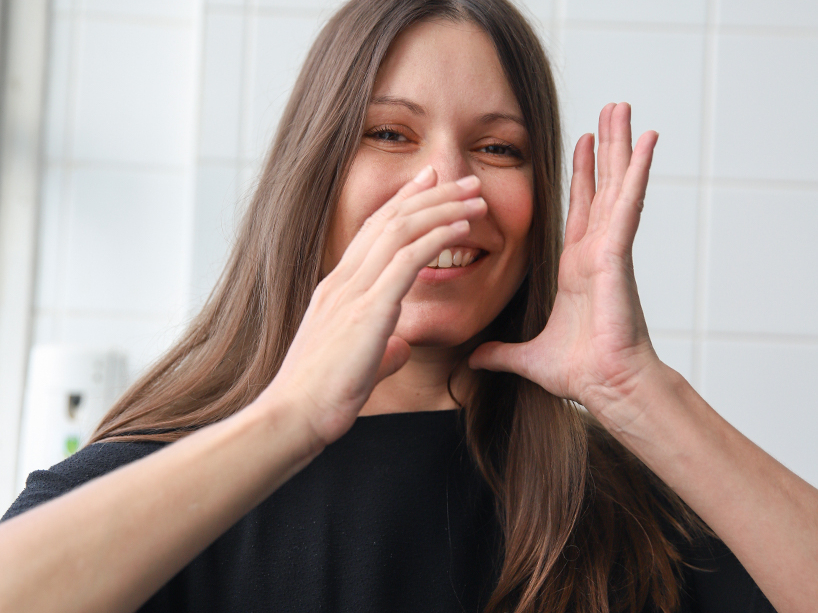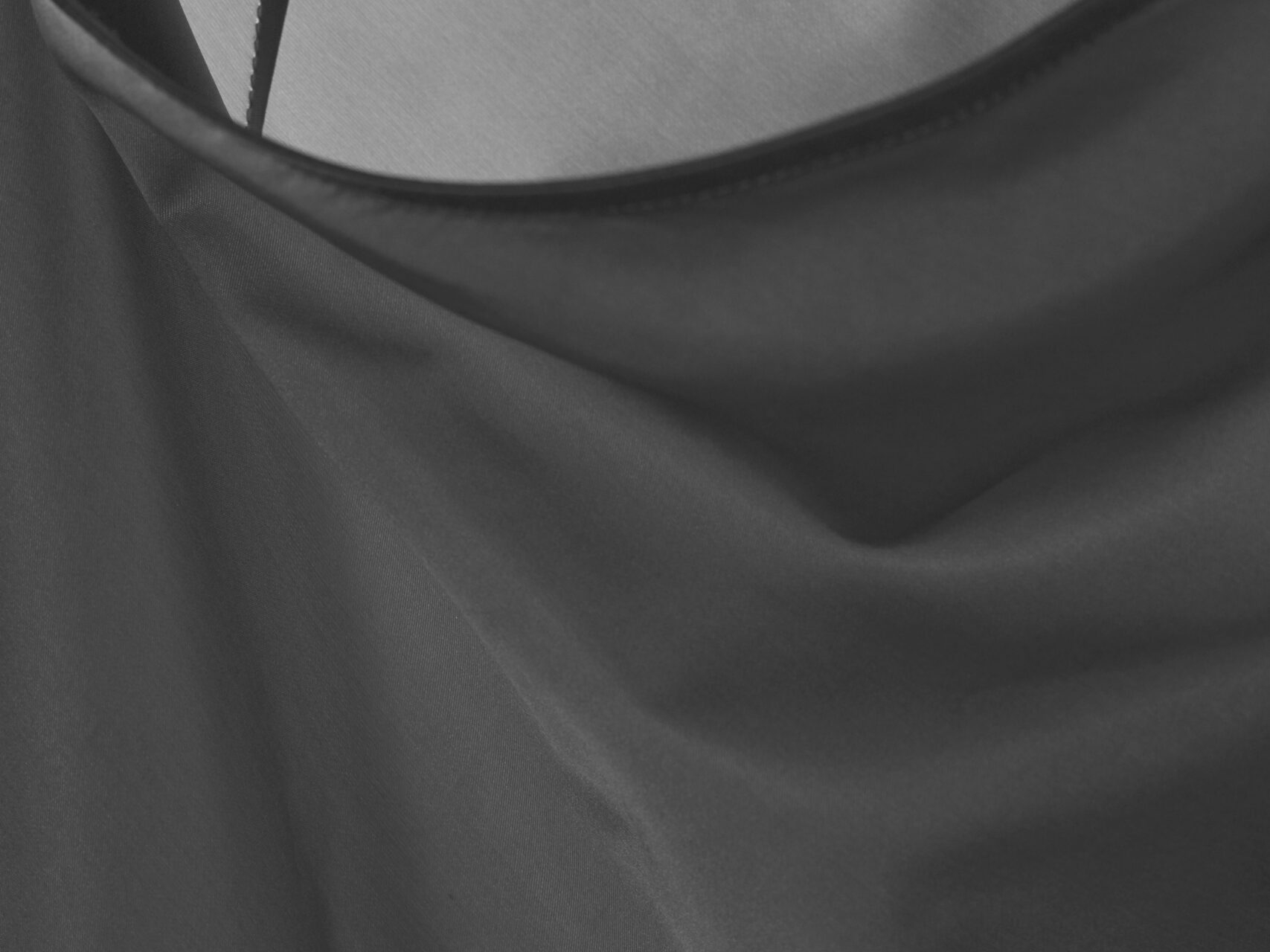As we continue in our new series, this week we meet Laura Doonin, the Sydney-based eCommerce expert and director of Moustache Republic, who has bold ideas for merging a retailer’s online-offline shopping experience. Tapped early in her career by eBay Australia, Doonin now works closely with brands, helping them to “reengineer” and navigate an ever-changing digital landscape. Here, she reveals her thoughts on the state of online shopping in Australian and where opportunities lie to move forward with integrity, transparency and authority.
"One thing I’ve learned is that being around people who understand technology is important, but equally it’s about surrounding yourself with people who understand your industry, one can’t compensate for the other."
Laura Doonin
"One thing I’ve learned is that being around people who understand technology is important, but equally it’s about surrounding yourself with people who understand your industry, one can’t compensate for the other."
Laura Doonin
UMENCO: eCommerce is your passion, and you are working with retailers to reengineer their brand and build their digital presence – can you tell us about your career journey and how you came to work in the digital space?
Laura Doonin: I’ve been in Australia now for nine and a half years. I studied fashion at university in Scotland, at a famous school near Edinburgh. I gained an Honours Degree in fashion design and from there I became a menswear buyer based in Glasgow with one of the biggest menswear multi-brand stores.
UMENCO: I am always so fascinated by what prompted early pivots in a career path – what was it that made you switch your focus from the creativity of design to the buying side of fashion?
Laura Doonin: Perhaps it was that I was comparing myself to the other creatives around me. I was exposed to so many true designers who were so caught up in the process, they almost didn’t care about the money side of the business as long as they were creating, whereas I knew quite early on that my interest was more about the product: how do we get the product into people’s hands, what was it that drove shoppers in to store? I was then sponsored by eBay to come to Australia, which was such an exciting challenge. eBay was looking for someone to come on board and basically target the Australian marketplace and analyse why it was such an important business channel for them. I had a steep climb in that role but also I had great success, I signed up some of the country’s biggest brands to trade on eBay. A big reason the role appealed to me was that I was still able to work within the fashion industry, but I was learning so much in terms of business and strategic growth, and how the digital space worked.
"I was exposed to so many true designers who were so caught up in the process, they almost didn’t care about the money side of the business as long as they were creating, whereas I knew quite early on that my interest was more about the product."
Laura Doonin
"I was exposed to so many true designers who were so caught up in the process, they almost didn’t care about the money side of the business as long as they were creating, whereas I knew quite early on that my interest was more about the product."
Laura Doonin
UMENCO: Tell me more about those learning years, you entered the industry at a time when e-commerce was experiencing such tremendous growth.
Laura Doonin: The digital landscape is constantly changing. One thing I’ve learned is that being around people who understand technology is important, but equally it’s about surrounding yourself with people who understand your industry, one can’t compensate for the other. You can liken a marketplace like eBay or Amazon to a frenemy – if you use them effectively and if you have a strategy then that’s great, but if your brand goes in blindly and you’re just trying to push through your inventory then it probably isn’t the smartest decision. One thing I realised quite quickly is that a retailer’s marketplace is only one side of the story, you’ve got to have a strong website, solid brand identity, you’ve got Instagram and Facebook, and they, too, are their own marketplaces as such. Ultimately, I think a marketplace makes for a really good strategy if you have just started a new brand because it has the eyeballs, potentially millions of people visiting the site each month. If you have a good product and good imagery, a strong brand identity, then it can quite quickly bring your brand up to a level where people start to know it, and then, later, you can hopefully move your products off that channel and onto your own. Marketplaces definitely have a place for every brand but at different times of their lifecycle.
"We then started to see eCommerce become a lot more data-driven, which was an important turning point – even fashion now has to go down this whole intersection of intelligence and analytical information meeting with creativity and brand identity; they have to go hand in hand."
Laura Doonin
UMENCO: What would you describe as the hallmarks of a successful eCommerce site?
Laura Doonin: The first thing people engage with or react to is a site’s user experience. After eBay, I went to work with a technology company that presented ways for fashion companies to go global. I evolved into more of a digital-focused role because that’s where the gaps were. So many of the retailers that I was talking to had problems that they couldn’t find answers to. I guess that when I look back at my career journey now, I feel it was pushed along with the questions I was being asked by the industry. From there, I made a decision that I wanted to get back into retail and ended up working with a franchise pharmacy company which was good in terms of reacquainting with the dynamics of old-school retail, and also understanding the Chinese market. Back then, you could really see the Chinese influence starting to take a stronghold in the Australian market.
We then started to see e-commerce become a lot more data-driven, which was an important turning point – even fashion now has to go down this whole intersection of intelligence and analytical information meeting with creativity and brand identity; they have to go hand in hand. We have all seen the rise in online shopping over the years, but there is still a very distinct spending gap between what retailers are making in-store compared to what they make from their online store. Up until this point, the more traditional retailers continued to value the in-store experience more, however, I think COVID has really changed that mindset. Obviously we need to hang on to those kinds of nostalgic feelings, the core of the brand’s values and its DNA, but ultimately I think if a lot of retailers had studied their data better then potentially a lot of their online business would have been stronger, the pivot would have been easier.
"The merging of the online and offline experience is an important component to brand success, which I think is fabulous because you're going to start to see the people in the physical stores actually have a part to play in the online space."
Laura Doonin
"The merging of the online and offline experience is an important component to brand success, which I think is fabulous because you're going to start to see the people in the physical stores actually have a part to play in the online space."
Laura Doonin
UMENCO: What are your thoughts on virtual showrooms, is it an idea brands should be embracing?
Laura Doonin: I think previously where we have seen this kind of technology, and virtual stylists, I’ve always thought it was a bit gimmicky. But now with COVID, those sorts of services are moving high up a retailer’s priority list. The merging of the online and offline experience is an important component to brand success, which I think is fabulous because you’re going to start to see the people in the physical stores actually have a part to play in the online space. So when it comes to technology, an important point to remember is that it’s changing all the time, and you need to be open-minded, ask questions and not be ashamed of sounding ignorant. Success also has to be measured definitely now, it’s an idea a lot of retailers are starting to embrace because you can’t have your online team always going up against the store teams, you want them to work together.
I still love physical retail, but the reason why department stores aren’t performing well is because of all the hurdles we as consumers face – we don’t want to drive into the city, park, and then get to the store not understanding what products we’ll find. It’s all about meeting customer expectations, setting the benchmark a lot higher. If a multi-brand retailer such as David Jones, can’t show me a selection of dresses in my size and then point to where I’ll find them, then chances are I’ll just start searching the web or Instagram.
UMENCO: What would be your recommendations for aligning the offline-online experience?
Laura Doonin: I think it’s about working out where you are in the brand’s lifecycle. I am currently working with an agency that focuses on building websites and improving experience, and we use two platforms, Big Commerce and Shopify, and the reason I like these platforms is because they can scale up or down. It’s not the same size of project for every retailer. For a department store such as David Jones or Myer to be able to synchronise their online and offline together is a massive undertaking. I think with Covid we will start to see some permanent changes over the coming months, and that doesn’t mean that physical stores are dead, but I do think we will start to see consolidation of stores. In some cases, it may be retailers that have actually needed to shut the doors anyway and this will be the catalyst, but the reality is that these types of retailers will need to streamline their offering to survive.
"I truly believe that we are in an exciting time, more so when creatives do not fear tech but embrace partnerships – it comes down to trust."
Laura Doonin
"I truly believe that we are in an exciting time, more so when creatives do not fear tech but embrace partnerships – it comes down to trust."
Laura Doonin
UMENCO: So what do you see as key priorities for brands right now?
Laura Doonin: A key initiative is to ensure the online experience is effective. They need to make sure that they’re optimising the experience for an online shopper. The inventory has to be live on the site, and you have to be able to intuitively navigate through from home page to products. I also think it’s about empowering the sales staff in-store to work more effectively with these systems. This is where the business can become more profitable and more cohesive. For instance, when it comes to the delivery options, it’s not so much about how quickly you can get it but rather how clear and transparent the information is on that product page. Adding LiveChat to your website should also be on your to-do list.
UMENCO: A wonderful example of syncing the online-offline shopping experience can be seen via your work with the label Aje. Why do you think this collaboration was such a success?
Laura Doonin: When I first met the team, I felt I could best help them by working to improve the brand’s e-commerce experience. I think having a fashion background helped: I understood that [its founders and creative directors] Edwina [Forest] and Adrian [Norris] wanted to stay true to their designer edge and their love for an editorial style whilst offering a best-practice online experience – and I love that, why would you want to look like every other site? The partnership has been going for over a year and has included a complete redesign of the website. I’d like to think that the Aje team see [our agency, Moustache Republic] as an extension to their business. I truly believe that we are in an exciting time, more so when creatives do not fear tech but embrace partnerships – it comes down to trust.
"I think I'm just waking up to that idea of the harshness that can come with thinking you have to fit a certain mould in business, and that actually doesn't work for me, it’s about making sure I've got the right kind of women – and men – around me, an environment that’s more inclusive."
Laura Doonin
"I think I'm just waking up to that idea of the harshness that can come with thinking you have to fit a certain mould in business, and that actually doesn't work for me, it’s about making sure I've got the right kind of women – and men – around me, an environment that’s more inclusive."
Laura Doonin
UMENCO: The other huge topic is sustainability.
Laura Doonin: Absolutely. Brands need to embrace it – with both intention with action. Zara recently announced a huge commitment to making its products from renewable fabric. Obviously, Zara is a massive retailer and smaller brands will find it hard to compete with those sorts of goals, but they do have to start to look at making pivots where possible, whether it be the product, the culture, or the team. It’s all about transparency in this area. It could also be your employment systems, and how many women you have in leadership roles. In my mind, you can talk about sustainability all day long, but if you’re not a nice boss, then I’m not going to support your brand.
When I think about my career, I feel that I have found success in roles by being able to ask questions and seek out information that I didn’t know. We are entering into a strange time but I do think the brands that will do well right now are those that continue to try to do the right thing whilst adhering to their core values and not losing their identity. I feel there’s still so much potential here in Australia, we could be a huge global player.
UMENCO: Tell us about your business mind, and how your career has shaped that viewpoint?
Laura Doonin: I’ve always taught fitness and yoga classes on the side and I meditate each day, and that has been really good for me, it keeps me grounded. I believe that movement is really important and I think for me in business, I try my best to respect everyone I meet. I also believe in aligning with like-minded people and having diverse ideas. I work with a lot of Chinese and Indian teams, so there has been this meshing of cultures which I have found so rewarding, but one of the things that I’m looking for moving forward is more feminine leadership. I want to speak to women who embody similar ideas to me and then work together to enhance those key elements such as collaboration and nurturing. I think I’m just waking up to that idea of the harshness that can come with thinking you have to fit a certain mould in business, and that actually doesn’t work for me, it’s about making sure I’ve got the right kind of women – and men – around me, an environment that’s more inclusive. Ultimately, it’s about trying to be the best person that I can be.
Portraits by UMENCO, all other imagery courtesy of Aje.




